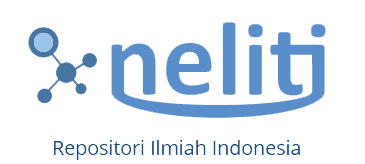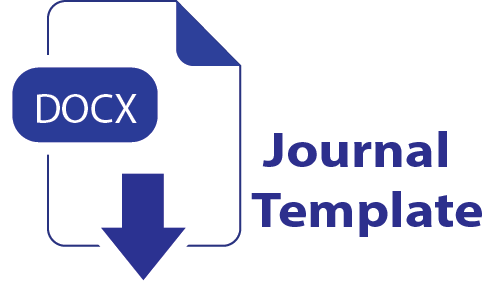EFEKTIVITAS PERENCANAAN, PELAKSANAAN DAN PERTANGGUNG JAWABAN DANA DESA PADA DESA LIMBANG JAYA I KECAMATAN TANJUNG BATU TAHUN 2017-2019
DOI:
https://doi.org/10.35908/jeg.v5i2.1093Abstrak
This study aims to evaluate the effectiveness of planning, implementation, and accountability for the use of village funds in Limbang Jaya I village, Tanjung Batu district. The population in this study is the planning and accountability report of village funds in Limbang Jaya I village, Tanjung Batu district. While the sample is the planning and accountability report of village funds in Limbang Jaya I village, Tanjung Batu district from 2017-2019. The results of this study indicate that the effectiveness of management planning and reporting on the use of village funds in Limbang Jaya I village, Tanjung Batu district in 2017-2019. Basically it has been going well, this can be seen from the planning and implementation of the use of village funds and accountability reports on village funds in Limbang Jaya I village in accordance with procedures. However, it is still not effective. Because there is still a lack of transparency in involving the participation of village communities in a spirit of mutual cooperation, and utilizing local wisdom and natural resources in determining infrastructure development that is prioritized for village progress so that the benefits of development are felt more by the village community, and have not been well documented. Relating to the expenditure of village funds used in the construction of village infrastructure.
Â
Keywords : effectiveness, planning, implementation, accountability, village fundReferensi
Boedijono, dkk.(2019). Efektivitas Pengelolaan Dana Desa Untuk Pembangunan dan Pemberdayaan Masyarakat Desa di Kabupaten Bondowoso.Jurnal Riset Manajemen dan Bisnis (JRMB) Fakultas Ekonomi UNIAT Vol.4 No.1.
Kuncoro, Mudrajad. (2019). Ekonomika Desa Teori, Startegi, dan Realisasi Pembangunan Desa. Yogyakarta: Sekolah Tinggi Ilmu Manajemen YKPN.
Peraturan Daerah. (2015). Peraturan Pejabat Bupati Ogan Ilir No.40 Tahun 2015 Tentang Pengelolaan Keuangan Desa.Ogan ilir.
Republik Indonesia, (2014).Undang-Undang Nomor 6 Tahun 2014 Tentang Desa. Jakarta
Republik Indonesia. (2014). Peraturan Pemerintah Nomor 8 Tahun 2014 Tentang dana desa yang bersumber dari anggaran pendapatan dan belanja Negara. Jakarta.
Republik Indonesia.(2014). Peraturan Pemerintah Nomor 114 Tahun 2014 Tentang pedoman pembangunan desa. Jakarta.
Republik Indonesia.(2018). Peraturan Pemerintah Nomor 20 Tahun 2018 Tentang Perubahan Pengelolaan Keuangan Desa. Jakarta.
Saputra, I Wayan.(2016). Efektivitas Pengelolaan Alokasi Dana Desa pada Desa Lembean Kecamatan Kintamani, Kabupaten Bangli Tahun 2009-2014.Jurnal Jurusan Pendidikan Ekonomi Vol.6 No.1.
Sugiyono.(2012). Metode Penelitian Bisnis (Pendekatan Kuantitatif, Kualitatif, dan R&D). Bandung: Alfabeta.
Sugiyono.(2018). Metode Peneitian Bisnis (Pendekatan Kuantitatif, Kombinasi, dan R&D). Bandung: Alfabeta.
Sujarweni, V. Wiratna.(2019). Akuntansi Desa. Yogyakarta:Pustaka Baru Press.
Sulastri, Nova. (2016). Efektivitas Pengelolaan Alokasi Dana Desa (ADD) Dalam Meningkatkan Pembangunan Fisik Desa Lakapodo Kecamatan Watopute Kabupaten Muna.Jurnal S1 Ak Universitas Pendidikan Ganesha Jurusan Akuntansi Program S1 (Vol: 8 No: 2 Tahun 2017).
Syahadatina, Rika. (2017). Akuntabilitas Pengelolaan Alokasi Dana Desa di Desa Rapa Laok Kecamatan Ombean Kabupaten Sampang. Jurnal Akuntansi dan Investasi Vol.2 No.1.
Unduhan
Diterbitkan
Cara Mengutip
Terbitan
Bagian
Lisensi
Authors who publish with this journal agree to the following terms:
- Authors retain copyright and grant the journal right of first publication with the work simultaneously licensed under a Creative Commons Attribution License   that allows others to share the work with an acknowledgement of the work's authorship and initial publication in this journal.
- Authors are able to enter into separate, additional contractual arrangements for the non-exclusive distribution of the journal's published version of the work (e.g., post it to an institutional repository or publish it in a book), with an acknowledgement of its initial publication in this journal.
- Authors are permitted and encouraged to post their work online (e.g., in institutional repositories or on their website) prior to and during the submission process, as it can lead to productive exchanges, as well as earlier and greater citation of published work










